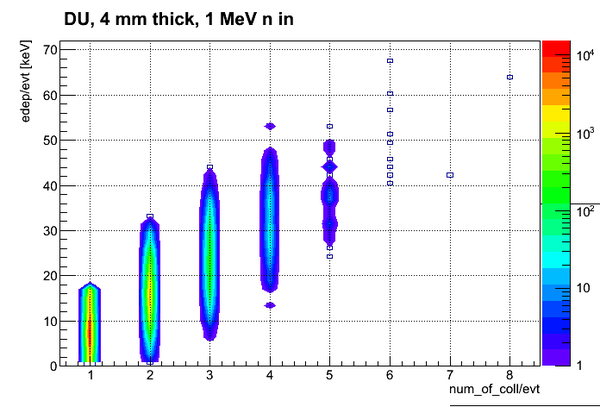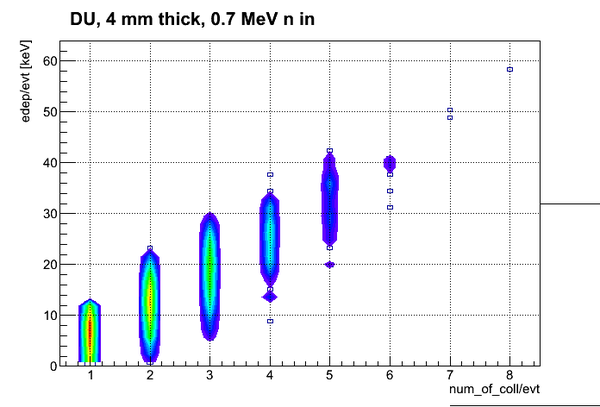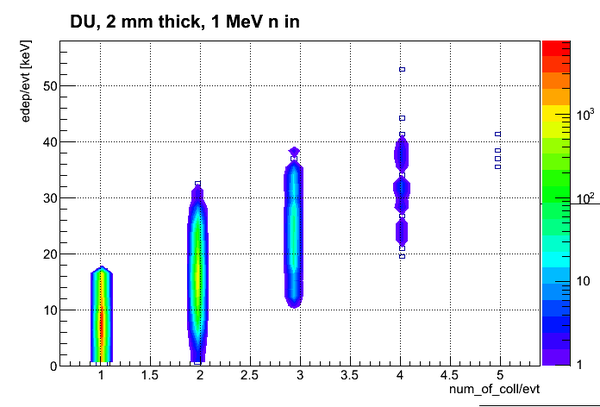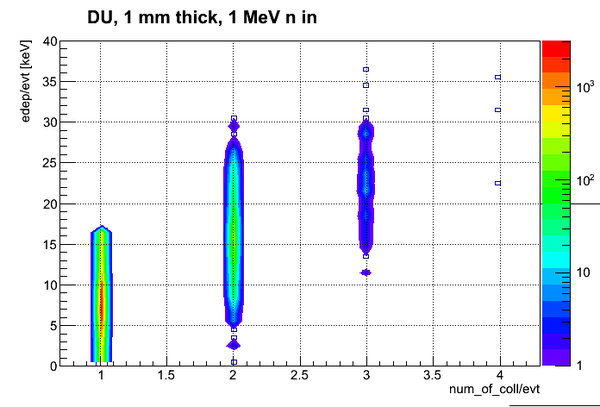Difference between revisions of "DU target n-multiple scatter"
Jump to navigation
Jump to search
| Line 1: | Line 1: | ||
| − | Neutron multiple scattering due to elastic collisions inside DU target and corresponding energy losses were simulated. Also angular distribution was obtained for the neutrons outside of the target. The angle was measured w.r.t. the initial beam direction. The neutron beam was pencil-like w/o divergence monoenergetic (1 MeV) and incident normally to the surface of DU target. <math>10^6</math> neutrons were initially incident upon the target. | + | Neutron multiple scattering due to elastic collisions inside DU target and corresponding energy losses were simulated. Also angular distribution was obtained for the neutrons outside of the target. The angle was measured w.r.t. the initial beam direction. The neutron beam was pencil-like w/o divergence monoenergetic (1 MeV) and incident normally to the surface of DU target. <math>10^6</math> neutrons were initially incident upon the target. The target was composed of DU and had a cylindrical shape with diameter 7 cm and thickness 4 mm. |
'''4 mm thick DU''' | '''4 mm thick DU''' | ||
Revision as of 15:39, 8 September 2014
Neutron multiple scattering due to elastic collisions inside DU target and corresponding energy losses were simulated. Also angular distribution was obtained for the neutrons outside of the target. The angle was measured w.r.t. the initial beam direction. The neutron beam was pencil-like w/o divergence monoenergetic (1 MeV) and incident normally to the surface of DU target. neutrons were initially incident upon the target. The target was composed of DU and had a cylindrical shape with diameter 7 cm and thickness 4 mm.
4 mm thick DU
2 mm thick DU
1 mm thick DU



